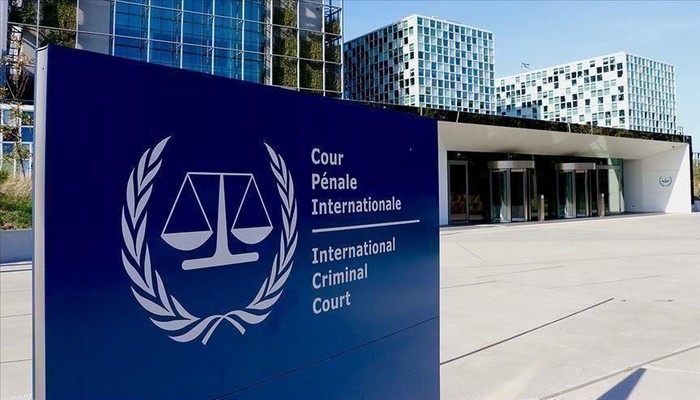ICC acknowledges petition to investigate election violence, ethnic incitement in Nigeria

The International Criminal Court (ICC) has acknowledged a petition from one Gideon Christian, requesting an investigation into election and post-election violence in Nigeria, including alleged incitement to ethnic hate by Bayo Onanuga, the spokesperson of President-elect Bola Tinubu.
The acknowledgement letter, dated March 27, 2023, with reference number OTP-CR-109/23, was signed by Mark P. Dillon, Head of Information & Evidence Unit, Office of The Prosecutor.
The letter stated that the Office of the Prosecutor would consider the communication, as appropriate, per the provisions of the Rome Statute of the International Criminal Court.
However, the letter emphasised that the acknowledgement did not mean an investigation had been opened or that the Office of the Prosecutor would open an investigation. The letter stated that the Office would inform the petitioner of any decision reached in writing and provide reasons for the decision.
The petitioner, Christian, in his petition titled: ‘Request to Investigate the Election and Post-Election Violence in Nigeria as Well as Incitement to Ethnic Hate by Mr. Bayo Onanuga’, invited the Office of the Prosecutor to conduct an investigation into a series of ethnically motivated violence resulting in injuries and death during the just concluded presidential and governorship elections in Nigeria.
Christian alleged that Onanuga issued a threat on Twitter warning individuals from the Igbo ethnic group that 2023 should be the last time they would be interfering in Lagos politics.
He said promoting attacks against individuals from a particular ethnic group residing in a particular area clearly violated international law, adding that the international community must not only take action to prevent such acts from reoccurring but should also hold individuals involved in such wrongdoing accountable.
The petition was brought pursuant to Article 15 of the Rome Statute and stated that the European Union Election Observer Mission in Nigeria, which observed both elections, noted multiple incidents of “organized violent attacks,” resulting in “many casualties and fatalities.”
Christian said the incidents were the results of incitement to ethnic hatred by Nigerian politicians and their agents who actively (directly and indirectly) incited groups of individuals to inflict harm on other individuals from a targeted ethnic group (the Igbo), as well as individuals who “look like” people from that ethnic group.
He said that Onanuga, a very influential journalist turned politician and now director of media and publicity in the ruling political party’s presidential campaign organisation, issued a threat on Twitter, warning individuals from the Igbo ethnic group that 2023 should be the last time they will be interfering in Lagos politics.
He said that statement was issued after individuals from this ethnic group had been attacked and killed in Lagos during the governorship election and that the attacks continued after Onanuga’s tweet.
Christian said Onanuga’s concept of interference arose from the legitimate act by individuals from the Igbo ethnic group in Lagos in exercising their constitutional right to vote anywhere in Nigeria.
He stated that what was more disturbing about Onanuga’s tweet was the threat of future harm to individuals from the Igbo ethnic group in future elections in Nigeria.
The ICC is an international tribunal established to prosecute individuals for genocide, crimes against humanity, war crimes, and crimes of aggression. Nigeria ratified the Rome Statute establishing the ICC in 2001 and is, therefore, a state party to the treaty.
The acknowledgement letter from the ICC does not automatically mean an investigation will be opened, as the Office of the Prosecutor will need to review the petition and determine whether there is enough evidence to warrant an investigation.
If the ICC decides to investigate, it will be the first time the court will look into election-related violence in Nigeria, which has a history of politically motivated violence and electoral irregularities.
In recent years, Nigeria has witnessed several incidents of election-related violence, including the 2011 presidential elections that resulted in over 800 deaths.
The 2023 elections were also marred by violence, with reports of ballot box snatching, voter intimidation, and clashes between rival political parties.
Many Nigerians have expressed frustration with the country’s electoral system, which they believe is plagued by corruption, vote-buying, and violence.
The ICC has been criticized in the past for the manner it handles cases, with some accusing the court of bias against African nations.
However, the court has defended its actions, stating that it is committed to upholding international law and ensuring justice is served for victims of crimes under its jurisdiction.
The ICC has opened investigations on several African nations, including Uganda, the Democratic Republic of Congo, Sudan, and Libya.






